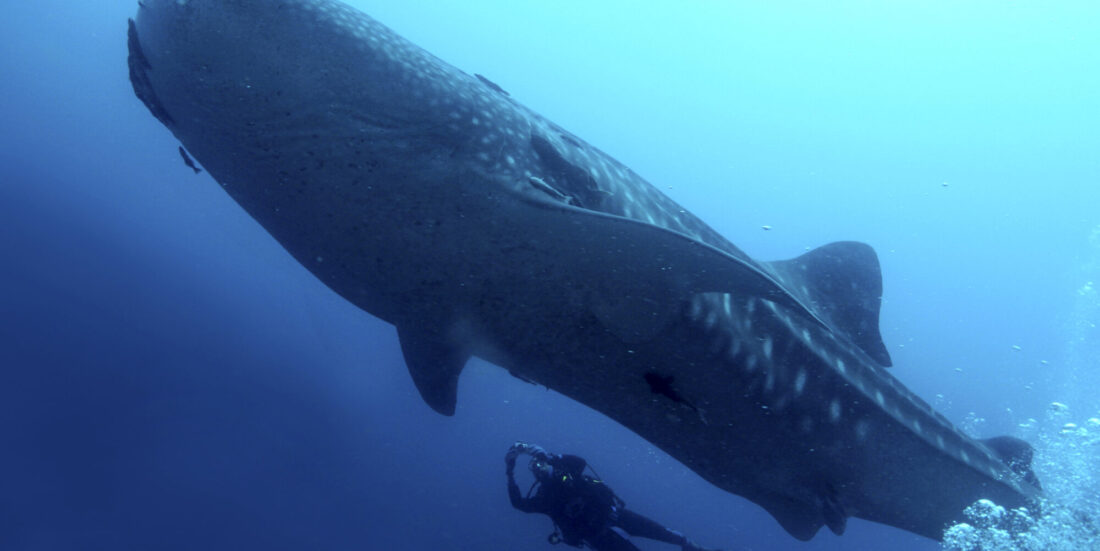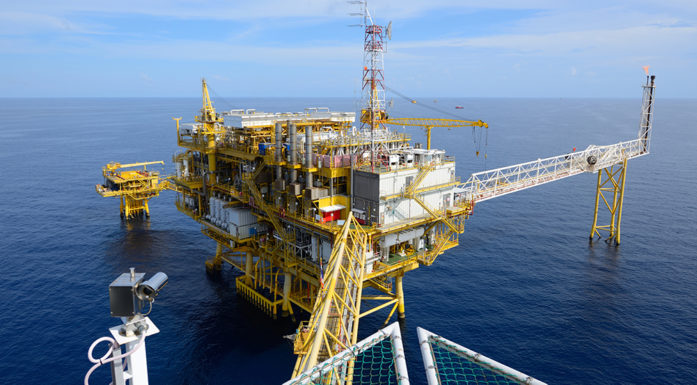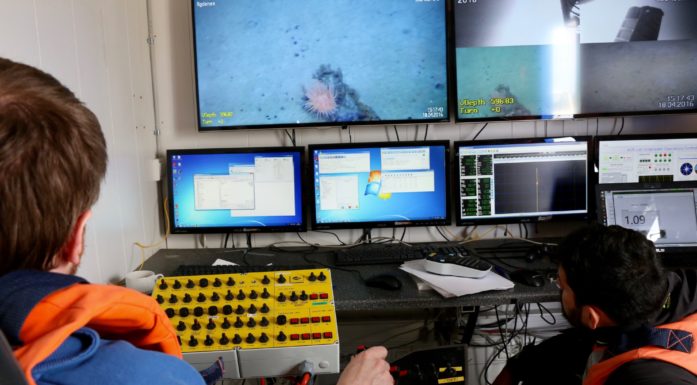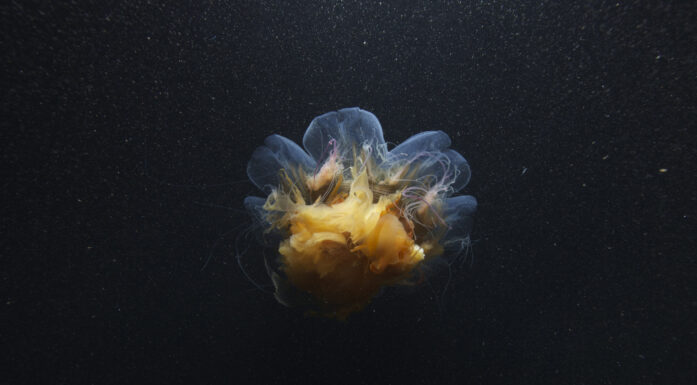Norway will be the first in the world to approve seabed mining. Is it a good idea?
The transition to a greener, renewable economy will require large amounts of minerals, and society has to get them from somewhere. Norwegian politicians have reached an agreement approving deep sea mining, in a proposal that has reaped both cheers and frustration from scientists and activists alike. Here’s what our scientists think.
In early June 2023, the Norwegian government presented plans (in Norwegian) that could make Norway one of the first countries in the world to allow commercial deep sea mining of minerals.
On December 5, four major political parties — the Norwegian Labour party (Ap), the Centre party (Sp), the Conservative party (Høyre) and the Progress party (FrP) said that they had secured a majority to support an amended proposal to open the Norwegian continental shelf to mining. The proposal will come up for a formal vote in the Storting in early January, 2024.
The agreement was reached given the requirement that the Storting approve the first development projects, as is done for certain projects in the petroleum sector.
The area proposed for development lies south of Svalbard, in the High North, and to the south and east of Jan Mayen, a Norwegian island about halfway between the mainland and Greenland. All told, the potential development area encompasses 281,000 km2 in the Barents and Greenland Seas.
You can read more about the decision in a press release from the Norwegian government here (in English).
Fiji and Norway have the most minerals
After Fiji, Norway is the country in the world with the most mineral-rich areas within its own economic zone.
Many believe that the transition to green energy will be difficult for Norway, without the country itself having the ability to provide cobalt, copper, zinc and other raw materials that go into batteries, electric car engines, wind turbines, solar cells and power lines.
There’s also another reason why politicians and industry representatives are so excited about the prospect.
Ever since 1969, when oil was discovered on the Norwegian continental shelf, Norway has built the know-how and expertise to work in the harsh environment of the North Sea.
From that perspective, deep sea mining can look like a logical next step in the country’s industrial development.
- You might also like: Six factors that will determine the cost of offshore wind power
Jubilation and despair
The politicians’ decision led Offshore Norway and the Norwegian Confederation of Business to cheer. Friends of the Earth Norway (Naturvernforbundet) calls the government’s plans crazy.
The government’s own Geological Survey has registered unusually sharp objections. Political opponents believe that Norway is at the forefront of razing the seabed, while the Wilderness Fund calls it the biggest disgrace in the history of Norwegian marine management.
But what do the researchers think?
Employees at NTNU and SINTEF, Scandinavia’s largest independent research institute, have actively contributed to the social debate. Research groups from the two organizations have developed technology, mapped resources and provided input both to legislation and for the government’s ocean strategy.
During the government’s consultation round, NTNU researchers mainly argued that the time is definitely not ripe to start extraction – and perhaps not even to open up commercial exploration.
What follows is a selection of articles and opinion pieces published on Norwegian SciTech News over the last decade, ever since mineral extraction in the deep sea surfaced as a possible new industry.
We’ll take the newest first. After the government in June stepped in to open up underwater mining, we took a tour of NTNU’s leading researchers in the field. Their conclusion was clear:
A decade-long debate
The topic first began to be discussed 10 years ago, in connection with new projects on exploration.
“It is likely that the mining industry will eventually go to sea, in the same way as the oil industry has done,” Professor II Fredrik Søreide at the Department of Marine Technology told Norwegian SciTech News in early winter 2013:
In 2013, researcher Steinar Ellefmo led a project that estimated the value of marine minerals within this zone at close to NOK 1,000 billion – gross.
In 2014, Oceans was named as a strategic research area at NTNU. The following year, Norwegian SciTechNews wrote about the Deep Sea Mining project, which was designed to take the mapping of minerals a big step further. An important part of the research was an examination of ethics and the environmental consequences of seabed mining.
Opportunities or pitfalls?
At the Lerchendal conference in 2016, Prime Minister Jonas Gahr Støre spoke about the great opportunities that lie in the oceans, and about how Norway should use and manage these resources:
“Down on the seabed between Svalbard and Jan Mayen, Norway has gold, silver, copper and zinc. Metals and minerals the world needs. We are now acquiring knowledge about these mineral deposits and about the possibilities for putting them to use.”
This is what then director Ingrid Schjølberg of NTNU Oceans and department head Egil Tjåland wrote in this opinion piece in January 2019:
Disaster or industrial adventure?
“Environmental organizations fear that the extraction of seabed minerals will be the next natural disaster. I myself am convinced that precisely safeguarding the environment in the sea will be a prerequisite for extraction to start,” Lars Sørum, SINTEF’s Head of Research for Oil and Gas said in autumn 2021. Here’s what he had to say in a statement in spring 2023 about what he calls a new Norwegian industrial adventure on the shoulders of the oil and gas industry:
Technology, security, ethics
Siri Granum Carson, former director of NTNU Oceans, is concerned with technological, safety and ethical challenges facing the ocean. This was the theme of last year’s Ocean Week.
“A concrete example of the ethical challenges we face is the question of whether it should be opened for exploration for – and possibly extraction of – seabed minerals on the Norwegian continental shelf, as the government is now proposing,” Carson wrote in this opinion piece.
On 20 June, the government submitted the report entitled “Mineral operations on the Norwegian continental shelf – opening up of land and strategy for resource management” to the Storting.
– The time is overdue to find out whether marine mineral extraction can be made responsible. We have been working on that for many years and that work should continue, said Professor Steinar Løve Ellefmo to Gemini, then.
Still big knowledge gaps
Professor Mats Ingulstad pointed to compound and complex issues and large gaps in knowledge which he believed the government was not taking seriously enough.
“The political haste and the national approach alone are incompatible with the precautionary principle,” Ingulstad said
Professor Siri Granum Carson, director of NTNU Oceans, pointed to the overall
opinion from NTNU’s academics.
“There is so much uncertainty, especially when it comes to effects on ecosystems, that the time is definitely not ripe to start extraction, and perhaps not even to open up commercial exploration as is currently done,” Carson said.





